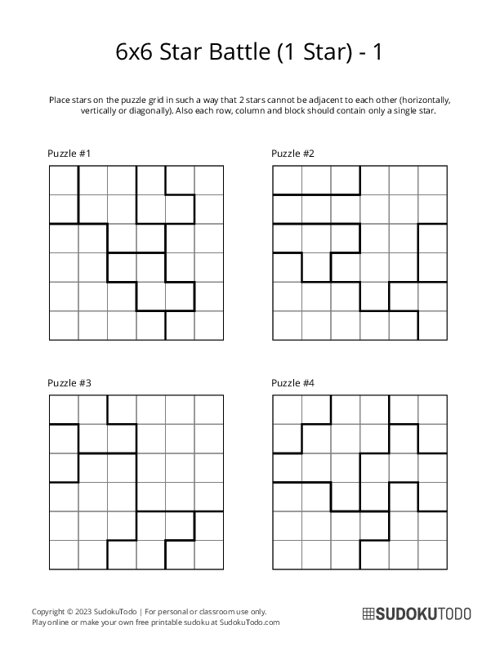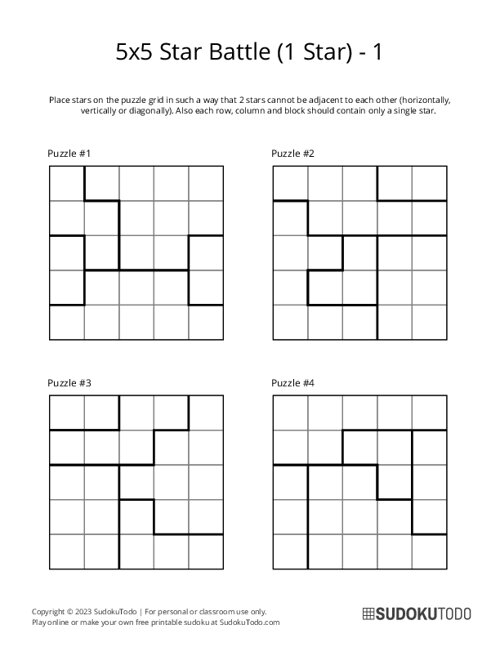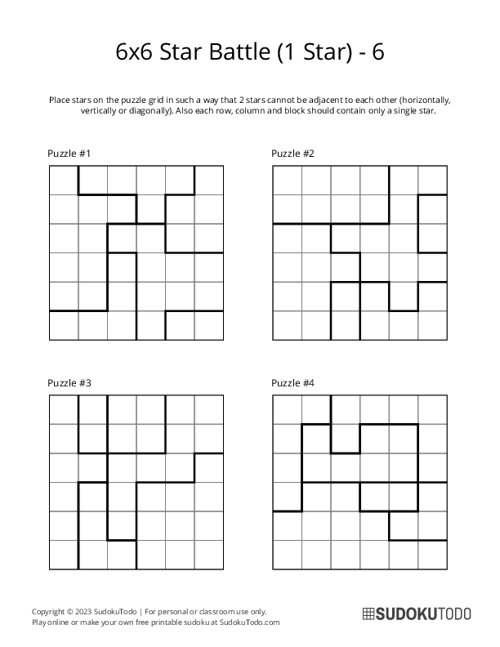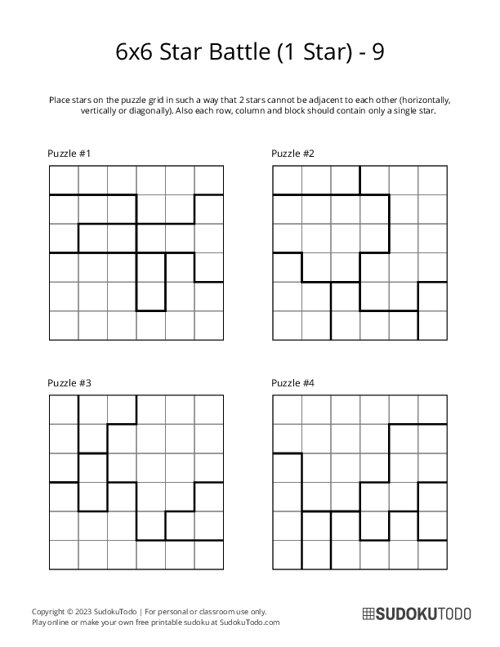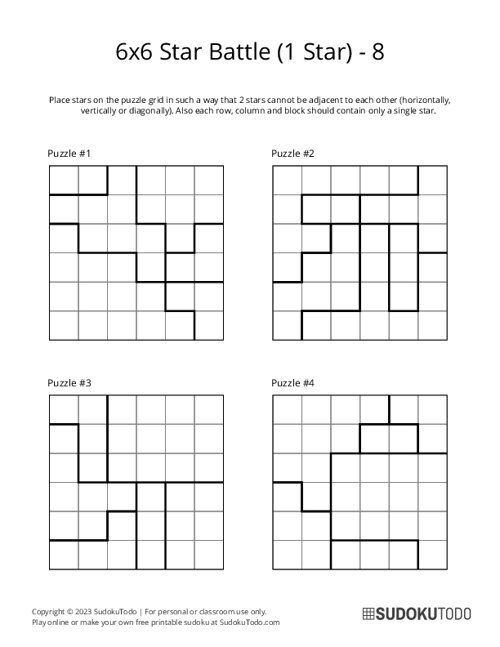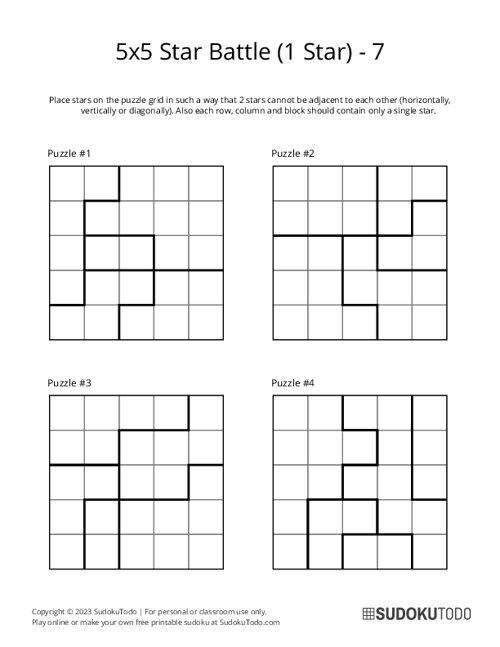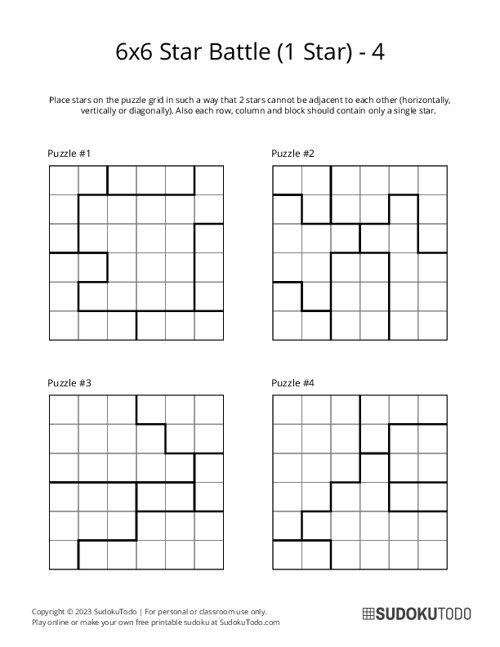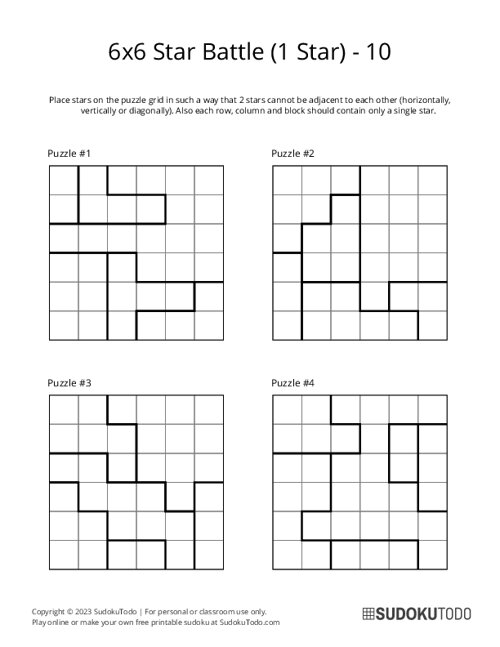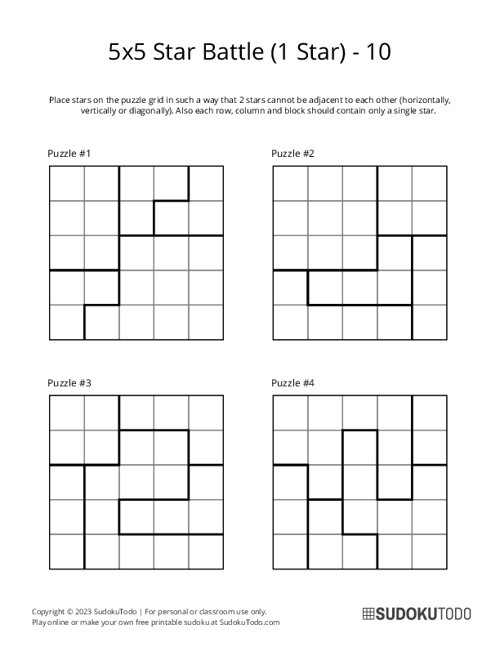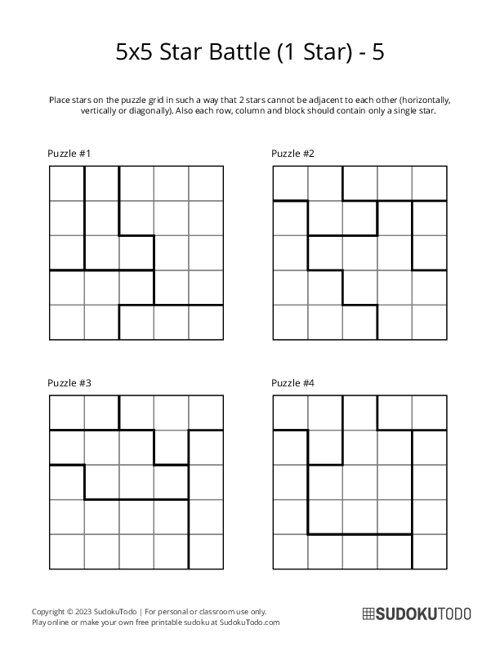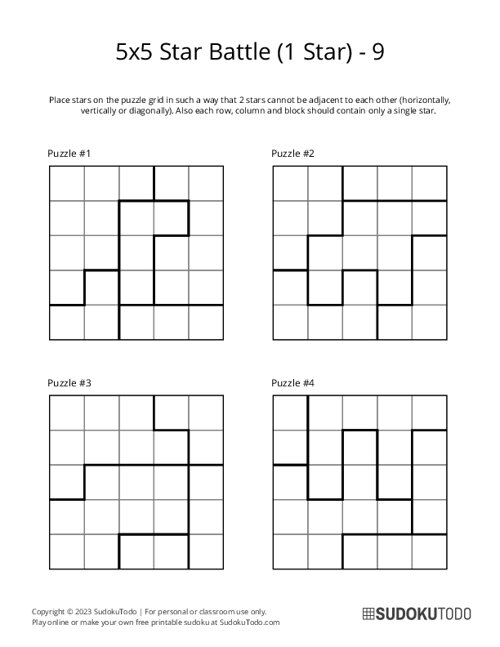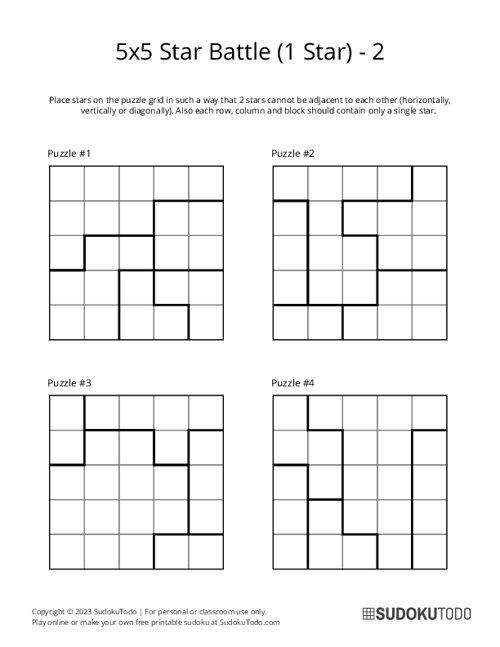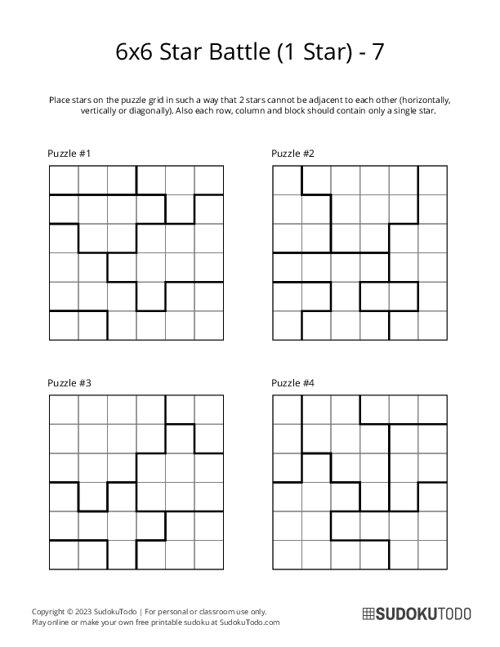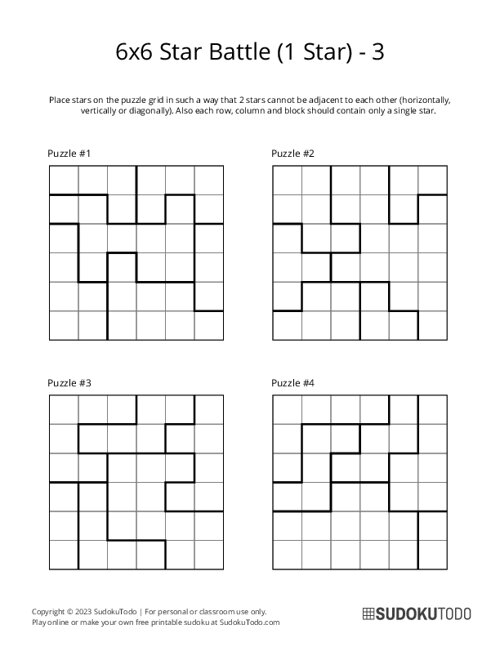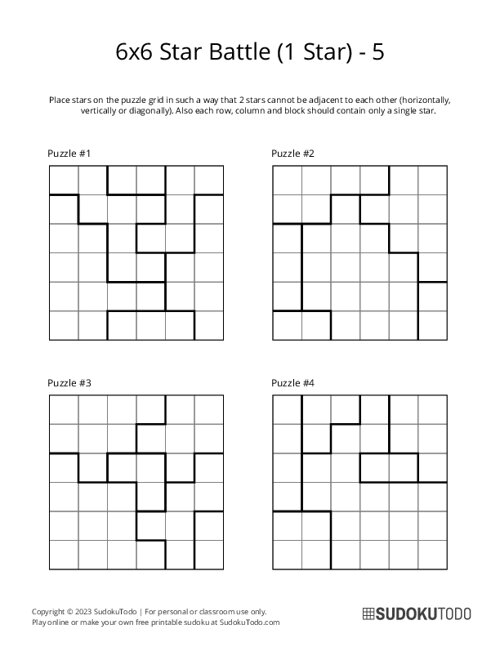Printable Sudoku
- Alphabet
- Battleships
- Binary
- Bridges / Hashi
- Chain Sudoku
- Consecutive
- Cross Sudoku
- Flower Sudoku
- Frame Sudoku
- Futoshiki
- Galaxies
- Greater Than
- Hitori
- Jigsaw Sudoku
- Kakuro
- KenKen
- Killer Sudoku
- Kropki Sudoku
- Little Killer
- Magic Squares
- Nonogram
- Odd Even Sudoku
- Outside Sudoku
- Rossini Sudoku
- Samurai Sudoku
- Sandwich
- Skyscraper
- Slitherlink
- Sohei Sudoku
- Star Battle
- Sudoku
- Sudoku for Kids
- Sudoku Mine
- Sudoku XV
- Sujiken
- Tripledoku
- Tripod Sudoku
- Twodoku
- Vudoku
- Windmill
Special Variations
Generate
Play / Solve
- Home»
- Star Battle»
- 1 Star
1 Star Battle Puzzles
Download free printable 1-Star Battle puzzles to challenge your logic and strategy skills. The objective is to place stars in such a way that no two stars are in the same row, column, or region (or cage) outlined in the grid. Download and print your copy to get started.
Showing 1-15 of 20 records
Sort by:
6x6 Star Battle Puzzle - 1 Star - 1
5x5 Star Battle Puzzle - 1 Star - 1
6x6 Star Battle Puzzle - 1 Star - 6
6x6 Star Battle Puzzle - 1 Star - 9
6x6 Star Battle Puzzle - 1 Star - 8
5x5 Star Battle Puzzle - 1 Star - 7
6x6 Star Battle Puzzle - 1 Star - 4
6x6 Star Battle Puzzle - 1 Star - 10
5x5 Star Battle Puzzle - 1 Star - 10
5x5 Star Battle Puzzle - 1 Star - 5
5x5 Star Battle Puzzle - 1 Star - 9
5x5 Star Battle Puzzle - 1 Star - 2
6x6 Star Battle Puzzle - 1 Star - 7
6x6 Star Battle Puzzle - 1 Star - 3
6x6 Star Battle Puzzle - 1 Star - 5
About Star Battle Puzzle
Star Battle is a fun and challenging logic puzzle where you place stars on a grid according to specific rules. Each row, column, and marked region in the grid must contain a set number of stars, and no two stars can touch, not even diagonally.
These puzzles test your ability to think logically and spot patterns while considering how the stars interact across the grid. It’s a great way to exercise your brain, improve problem-solving skills, and enjoy the satisfaction of solving a tricky challenge.
Basic Rules / How to Play
- Grid Size: The puzzle has N x N grid size where N can be 5, 6, 7, 8 and so on.
- Regions: The grid is divided into regions of varying shapes and sizes. Each region must contain exactly the specified number of stars.
- Placing Stars: Place a specified number of stars (typically 1 or 2) in each row, column, and region (also known as blocks or zones).
- No Touching: Stars cannot touch each other, not even diagonally. Each star must be isolated by at least one empty cell in all directions.
Solving Tips and Techniques:
- Analyze Constraints: Start by considering rows, columns, and regions that are nearly full or empty. This helps narrow down potential star placements.
- Use No-Adjacency Rule: Whenever a star is placed, mark all adjacent cells (orthogonal and diagonal) as invalid for other stars.
- Focus on Small Regions: Areas with few empty spaces can make it easy to figure out where stars go. For example, if an area has only two empty spots and needs two stars, the stars must go in those spots.
- Balance Rows and Columns: Keep track of how many stars are placed in each row and column to avoid exceeding the required count.
- Elimination: Use simple steps to rule out wrong options. For example, if putting a star in one box creates a problem in another box, think again about your choice.
- Look for Overlaps: When two regions overlap a lot, look at the shared cells. These shared spaces often hold important hints for where to place stars.
- Backtracking: If you reach a dead end, backtrack to a previous state and try an alternative placement.
